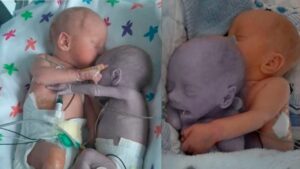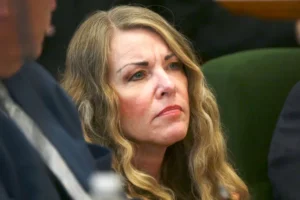Former Student, 21, Left Farewell Message for His Mom Before Killing 10 in Austria School Shooting

A 21-year-old former student carried out Austria’s deadliest school shooting on Tuesday, fatally shooting nine students and one teacher before turning the gun on himself. Authorities say the gunman left behind a handwritten farewell letter and a video message to his mother before the attack.

The massacre occurred at BORG Dreierschützengasse, a secondary school in Graz, the country’s second-largest city. The incident has sent shockwaves throughout Austria, prompting national mourning and urgent political discussions around mental health, gun control, and school safety.
According to police, the gunman—identified only as Artur A., a former student of the school who dropped out years earlier—entered the school armed with a legally obtained shotgun and a recently acquired Glock pistol. He began firing shortly before 10:00 a.m. local time, moving between classrooms and stairwells.
Survivors reported hearing over 40 gunshots. “It was chaos,” one student told local media. “We hid under desks. Some people screamed, others froze. Nobody knew what was going on.”
The shooter’s rampage lasted less than 15 minutes. He was later found dead by suicide in a restroom on the second floor.
A total of 10 people were killed: nine students, six girls and three boys aged between 14 and 17, and one 45-year-old teacher. At least 11 others sustained injuries, several of whom remain in critical condition.
Over 300 emergency personnel, including police, paramedics, and firefighters, responded within minutes. Helicopters were seen circling above the school as ambulances rushed victims to nearby hospitals.
“The speed of the emergency response likely saved many more lives,” said Graz Police Chief Markus Prenner.
In the aftermath of the attack, authorities searched the suspect’s residence and uncovered a farewell letter, a video message addressed to his mother, and diagrams and materials for an improvised explosive device. A non-functional pipe bomb was found in the apartment, along with writings hinting at a long-standing grudge and feelings of isolation.
While a motive has not been officially confirmed, investigators are exploring whether the gunman had been the target of bullying during his school years. A section of his video reportedly described himself as “broken and invisible.”
Authorities are now reviewing his mental health history and any possible online connections or radicalization. “There is no indication of political or religious extremism at this point,” said Interior Minister Gerhard Karner.
Austrian Chancellor Christian Stocker declared three days of national mourning. At 10:00 a.m. Wednesday, a nationwide moment of silence was held. Public transportation in Graz and Vienna came to a standstill, and flags across the country flew at half-mast.
President Alexander Van der Bellen offered his condolences, stating, “This is a wound in the heart of our nation. The pain is unimaginable.”
Education Minister Martin Polaschek announced that BORG Dreierschützengasse would remain closed indefinitely. He also confirmed that grief counselors and trauma specialists would be available to students, staff, and families in the coming weeks.
The gunman legally owned the shotgun and received his firearms license last year. He purchased the Glock pistol—used in the attack—just two months ago. Though Austria has some of the strictest gun laws in the European Union, critics argue that mental health screenings and background checks may not go far enough.
In response to the tragedy, the Austrian government is considering urgent revisions to its gun ownership policies. A proposal to mandate psychological evaluations for all firearms applicants is expected to be submitted to Parliament by the end of the month.
Hundreds gathered for a candlelight vigil outside Graz Cathedral on Tuesday night. Students placed photos, flowers, and handwritten notes at the school’s entrance. City Hall has opened a public condolence book, and churches across Graz held special services to honor the victims.
“It’s unbearable,” said a parent who lost their daughter in the attack. “You send your child to school and never imagine something like this.”
Memorial services are being planned in the coming days, and a national remembrance ceremony is scheduled for Sunday in Vienna.
This shooting—the deadliest in Austria’s modern history—has reignited conversations about youth mental health, social alienation, and the responsibility of institutions to detect warning signs before tragedies occur.
As Austria grieves, the names and faces of the ten lives lost have become symbols in a growing call for reform—both in how society supports vulnerable individuals and how it safeguards the most sacred spaces: its schools.





